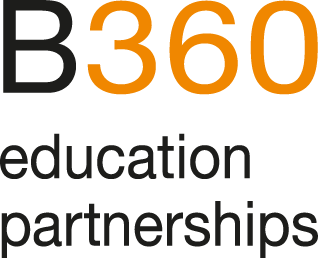PD Dr Markus Schuppler
Private Lecturer in Microbiology at the Swiss Federal Institute of Technology Zurich
Department of Health Sciences and Technology
Namibia University of Science and Technology
February 28 - March 15, 2025
During my assignment in 2025, I had again the privilege of teaching third-year students in the Biomedical Sciences Programme of Medical Laboratory Sciences at the Faculty of Health, Natural Resources, and Applied Sciences at NUST. My contribution to the Medical Microbiology course focused on Public Health, specifically the molecular pathogenicity of bacterial pathogens relevant to food and drinking water. This involved delivering lectures, conducting practical courses, and accompanying field trips.
Cooperation with university staff
Having known many members of the staff involved in the Biomedical Sciences Programme since my first assignment in 2016, I find that interacting and collaborating with them is always both, pleasant and effortless. This easiness greatly contributes to the success of each assignment and makes the experience consistently rewarding and fruitful. I am particularly grateful to Elmarie Eises for her active support and extensive knowledge, which played a key role in the successful delivery of the practical course. Despite the constant challenge of high student numbers, she but also other members of the Biomedical Sciences Programme staff, namely Venessa Tjijenda, Shapopi Kamanja, and Ottilie Udjombala provided their great support, and therefore contributed tremendously to the success of this assignment. Furthermore, I would also like to acknowledge the support of Carolie Cloete and Nico Smit. It is a reassuring feeling to know that I can always rely on their unwavering assistance. Therefore, I would like to express my heartfelt gratitude to all my colleagues at NUST for their invaluable support.
As in the previous two years, the number of third-year students remained high, with more than 50 participants. However, our experience from the past two years helped us to develop a practical approach to manage the challenges posed by such a large number of students and allowed us to deliver a well-received practical course. That said, I was surprised to learn that the number of third-year students will be doubled to 100 next year. This significant increase could present considerable challenges not only for the Biomedical Sciences Programme staff but also for the practical course itself. With 100 students, the course will need to be conducted twice, requiring double the time and space. It is currently unclear how we will address these challenges in the upcoming assignment.
Collaboration with students and memorable events
The most memorable experiences during my assignment often stem from personal interactions with the students. I particularly enjoy the practical courses and field trips, as they provide excellent opportunities for meaningful discussions. The students’ horrified expressions when they see their agar plates covered with bacteria from their throat swabs or out of their water bottles show that they will never forget these hands-on lessons and the underlying theory. The field trips are also a highlight for the students. This year, we visited the Gammams Water Care Works wastewater treatment plant in Windhoek, which proved to be an educational and impactful experience. The visit allowed students to connect their theoretical knowledge from the lectures to the practical application of microbes in wastewater treatment, engaging all their senses - especially olfaction 😉. Unfortunately, we were unable to visit the water analysis laboratories at Gammams, which would have been particularly valuable for Medical Laboratory Sciences students, by offering them a glimpse into their potential future work environments.
Impact and win-win
I was grateful for the opportunity to positively impact the education of Medical Laboratory Sciences students and contribute to preparing them for their future careers. Knowing that my dedication could influence their understanding and prepare them for their future professional life, especially in the area of food microbiology - a topic that is not covered by the lecturers on site - brought me a deep sense of satisfaction and confirmed that the assignment still makes sense. Moreover, receiving commendations from both the students in Medical Laboratory Sciences and the staff in Biomedical Sciences was truly fulfilling and motivating. Thus, I believe that my time teaching at NUST was a mutually beneficial experience and a remarkable opportunity for growth for all groups involved.
Personal message
Recognizing the crucial role of the education of young people plays in shaping the economic and social future of Namibia, I am proud to continue being part of the B360 education partnerships at the Namibia University of Science and Technology (NUST) in Windhoek. This program requires steadfast dedication and collaboration from all stakeholders, and I am truly grateful to the teams at B360 and NUST for their tireless efforts in ensuring its success. I hope that, together, we can make at least a small but lasting and meaningful impact on the future well-being of Namibia’s people.


























